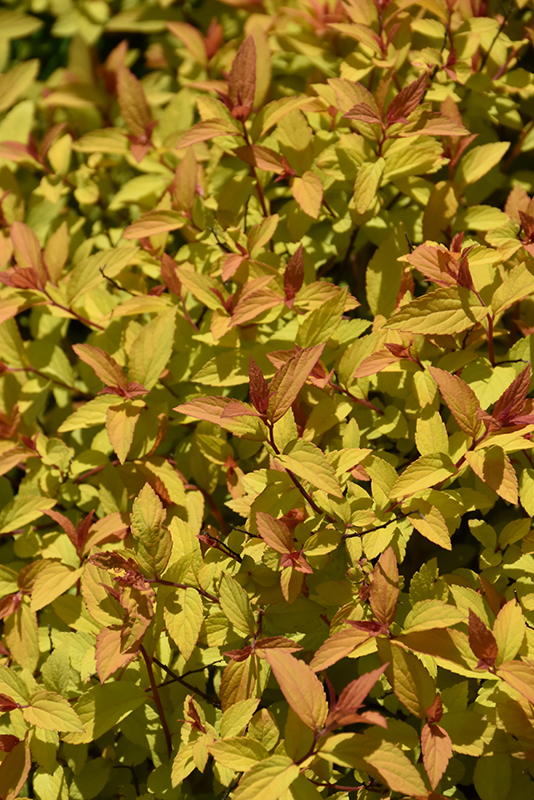Height: 24 inches
Spread: 30 inches
Sunlight:
![]()
Hardiness Zone: 3
Brand: First Editions
Description:
This compact variety has orange new growth that matures to yellow in summer, with shades of pink in fall; showy pink flower clusters in early summer; deadhead for re-blooming; very attractive in groupings; needs full sun and well-drained soil
Ornamental Features
Little Spark® Spirea features showy clusters of pink flowers at the ends of the branches from early to late summer. It has gold-variegated yellow foliage with hints of chartreuse which emerges orange in spring. The serrated pointy leaves turn outstanding shades of buttery yellow and pink in the fall.
Landscape Attributes
Little Spark® Spirea is a multi-stemmed deciduous shrub with a more or less rounded form. Its relatively fine texture sets it apart from other landscape plants with less refined foliage.
This shrub will require occasional maintenance and upkeep, and is best pruned in late winter once the threat of extreme cold has passed. It is a good choice for attracting butterflies to your yard, but is not particularly attractive to deer who tend to leave it alone in favor of tastier treats. It has no significant negative characteristics.
Little Spark® Spirea is recommended for the following landscape applications;
- Mass Planting
- Rock/Alpine Gardens
- General Garden Use
Planting & Growing
Little Spark® Spirea will grow to be about 24 inches tall at maturity, with a spread of 30 inches. It tends to fill out right to the ground and therefore doesn't necessarily require facer plants in front. It grows at a fast rate, and under ideal conditions can be expected to live for approximately 20 years.
This shrub should only be grown in full sunlight. It prefers to grow in average to moist conditions, and shouldn't be allowed to dry out. It may require supplemental watering during periods of drought or extended heat. To help this plant achive its best flowering performance, periodically apply a flower-boosting fertilizer from early spring through into the active growing season. It is not particular as to soil type or pH. It is highly tolerant of urban pollution and will even thrive in inner city environments. This is a selected variety of a species not originally from North America.

